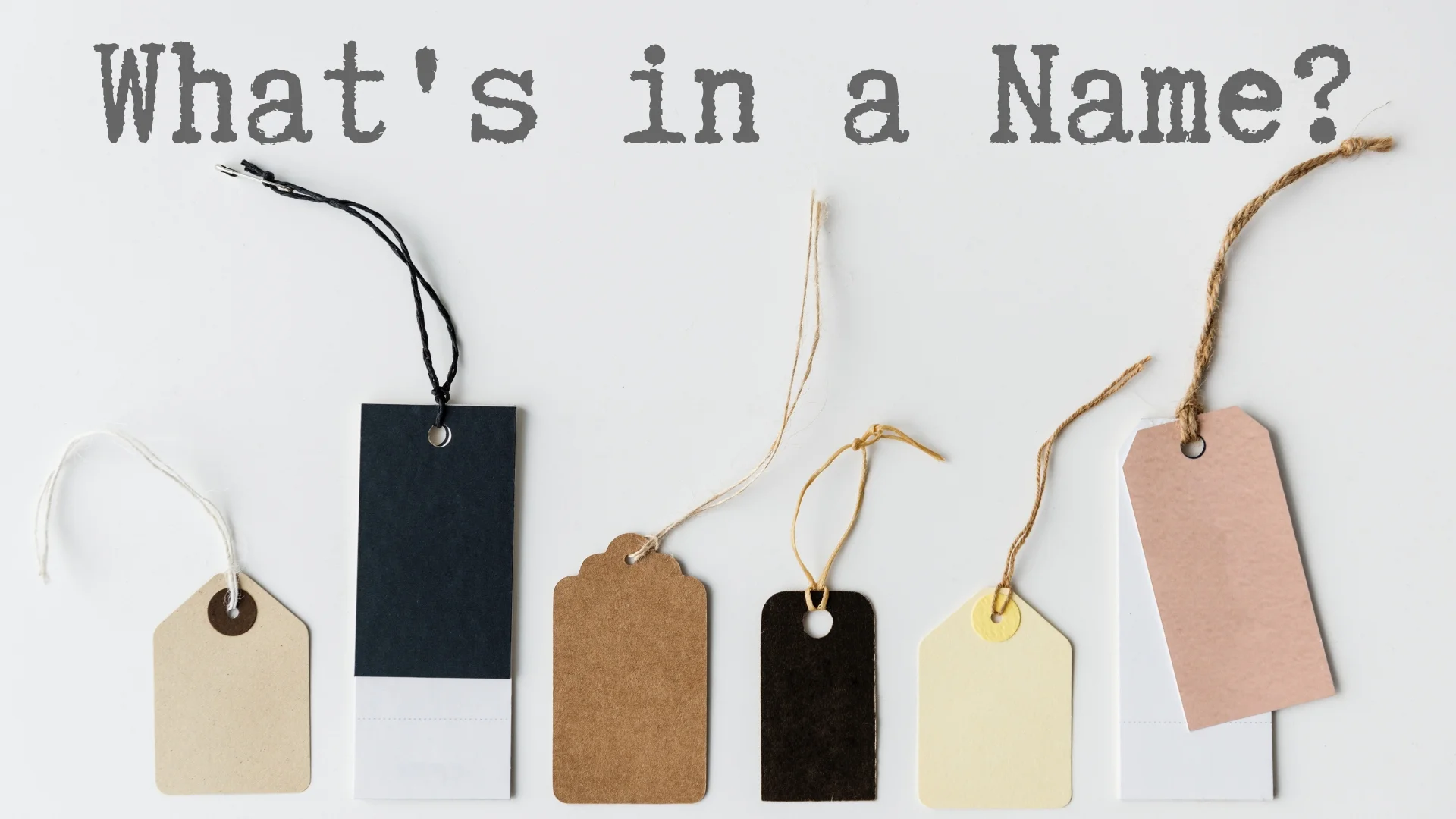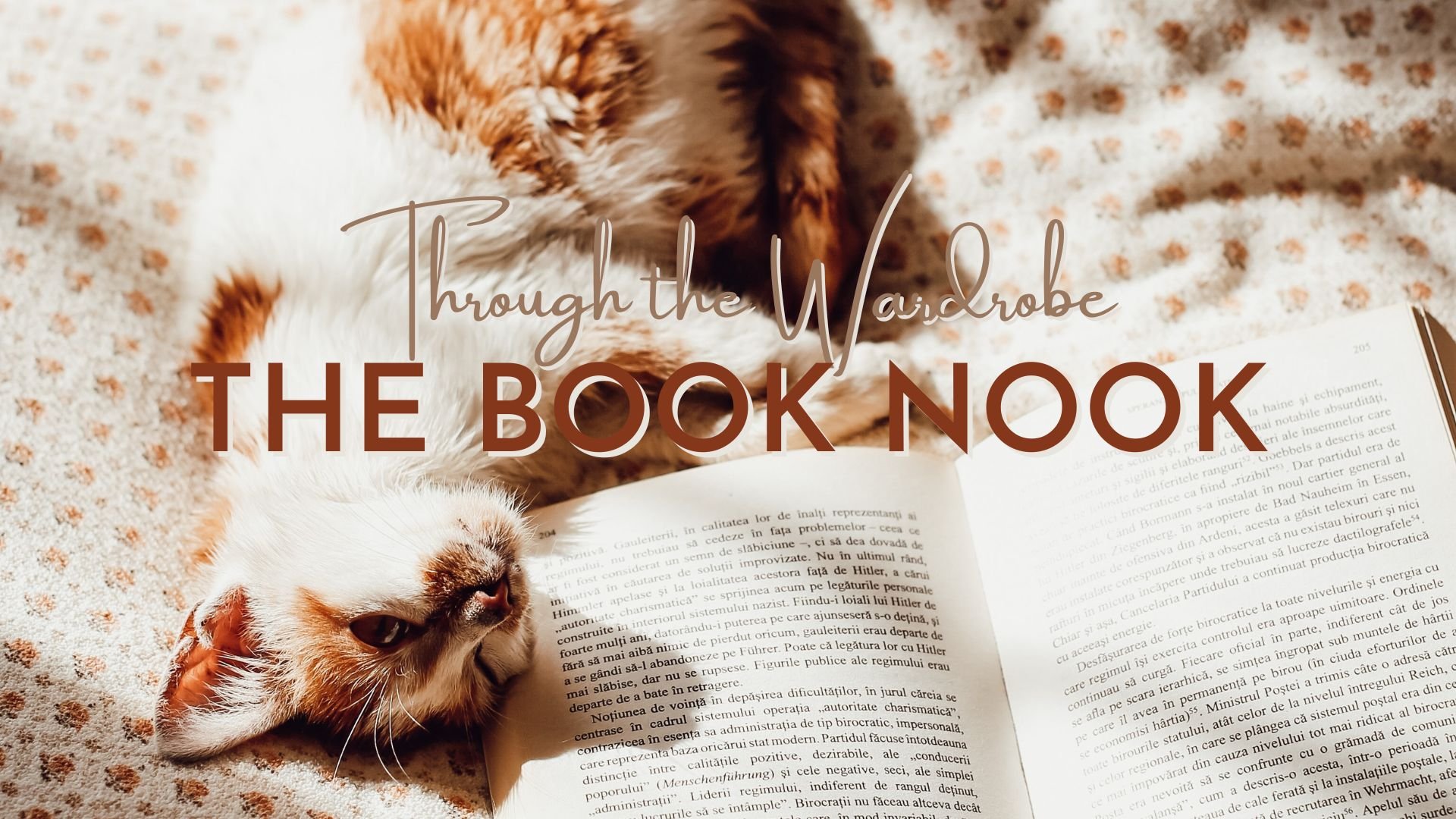What's In A Name?
What's in a name?
That which we call a rose by any other would smell as sweet, right? As incomparable as the Bard was, on this score I will have to respectfully disagree. (And it has nothing to do with the fact that Romeo and Juliet is my least favorite Shakespearean play.)
I find I’m squarely in Anne Shirley’s camp here:
“I read in a book once that a rose by any other name would smell as sweet, but I’ve never been able to believe it. I don’t believe a rose would be as nice if it was called a thistle or a skunk cabbage.”
I thought, perhaps, I was unique regarding this, but after attending countless author rounds and book signings, not to mention reading innumerable articles and interviews, I have found one thing to be true: Names are very important. Particularly to writers. Without the right name, the character won’t settle.
When it comes to names, Southern names are a breed unto themselves. And when the Christian name is combined with the sur, you have nomenclature worthy of inclusion in the Linnean system of classification.
The other night at The FoxTale Book Shoppe where Team W was launching the maiden voyage of The Glass Ocean (see GIVEAWAY post and enter to win here), Lauren Willig, Karen White, and Beatriz Williams were asked how they come up with the names of the characters in their books. The answers were varied. My favorite was that they got names from the signing lines for their books. Karen White, who resides in Georgia, gave a wonderful example about Sugar, a matriarchal Southern woman in The Night the Lights Went Out, who had- at the time- an unnamed best friend. Karen was having a Dickens of a time ferreting out the right name for her. A woman came to one of her book signings, handed her the book to be signed, and gave Karen her name: Willa Faye. Karen knew instantly that she had found the name of her matriarch’s best friend.
Margaret Mitchell struggled with the name of her heroine as well. For much of the writing of Gone With The Wind, Mitchell called her female protagonist Pansy. This is a truly Southern name. However, Pansy does not hold a single flickering candle to Katie Scarlett O'Hara. I would go as far to say that Gone With The Wind would have been a goner had Scarlett been Pansy. There's strength in Scarlett that isn't found in Pansy. A little danger and brashness, too. Scarlett fits the bill. Thank goodness Margaret Mitchell lighted upon that appellation before her book went to print.
Deanna Raybourn has a similar story in regards to her heroine in A Spear of Summer Grass (see posts here and here). Delilah Drummond’s name was not readily forthcoming, but when it came, Deanna knew with ineffable certainty that she had lighted upon the right one. Delilah made her debut upon the page as Diana, that name being trendy in the 1920s. However, Deanna knew Diana wasn’t right. She kept plugging away at the plot, as you do, until one day she lighted upon Delilah. My my my Delilah, as Tom Jones would say. Deanna knew Delilah was her heroine, and, if you’ve read the book, you’ll know why, too. Where her surname was concerned, Deanna vacillated between Dagliesh and Dawlish, but when paired with Delilah, those names were too close to Deanna’s personal friend and fellow author Delilah Dawson. So she swapped Dawlish/Dagliesh for Drummond. Then she was off and running. And while Delilah Drummond does not have the artifice ascribed to her biblical counterpart, she certainly has the hutzpah and tenacity one would expect of a woman who bares the name. Furthermore, as she has her roots deep in the Spanish moss draped South, Delilah Drummond is another prime example of the especial appellations one finds when rooting through the proverbial plantation attic.
“These Southern women certainly like to be difficult where their authors are concerned.”
I, too, had a bit of a wrestle where a character’s name was concerned. She, too, is Southern. She started on the page as Heather. However, the more she was fleshed out, the more I realized the name was off. It took a while, but one day the right name came and Heather became Daphne.
Daphne Magnolia Augusta Bohanan is a Southern belle and the black sheep of her family. Created to be one of my female protagonist Penelope's friends, she quickly demanded her own book. Demanded, that is, in that charming drawl particular to that exclusive echelon of Southerns who can trace their familial roots back to the Founding Fathers. She’s worn her fair share of crushed crinoline and debuted at debutante balls. She knows the schtick, and she hates it. Well, most of it. There are certain constants she won’t compromise on.
“She might rail against the South, and the injustices done her by her family because she followed her dream north of the Mason Dixon line, but there were some things set in the foundation of the earth, like homemade cream cheese frosting, hand-whisked mayonnaise, and breast-meat only chicken salad.”
Daphne is never without her faux lashes. Her red badge of courage is swiped across her lips before her feet touch the ground. She would never venture out unless her hair was coiffed perfection. She understands Fashion with a capital F. She puts the haute in Haute Couture. She's expensive. She’s regal. She’s rare. And she’s 100% real. I love her. Entirely.
While her drawl might be slightly indolent, there’s nothing lazy about her. Daphne has grand ambitions and sees no reason why she can’t achieve them all. (In my first novel, she’s well on her way to doing that very thing.) With a severe jet black bob and a svelte figure partial to tailor-made suits, she can come off as severe, but she does enjoy a good lounge in silk palazzo pyjamas, so there's that softness to her personality. Her well-shaped eyebrow arches frequently. As Rodgers and Hart wrote, she’s a terrible tongue and temper for two*. And, perhaps the most effrontery she displays is her ebony cigarette holder with colored Sobranie in the tip (she’s partial to green Sobranies, as they offset her red nail polish well). Yet, while she might push boundaries, she won’t whisk her heritage aside because of new trends. There’s a streak of the traditionalist in her, too. She is herself and all the more wonderful for it.
While some of Daphne’s personality was in the making, finding her name sealed the deal for me and unraveled many of her character details that endeared her to me.
As Deanna Raybourn says:
“For me, the character doesn’t come together until the name is set.”
And that’s what’s in a name, dear readers. Everything!
Now, for a bit of fun. Below you will find a poll with a variety of Southern names. Which one is your favorite? Keep in mind, these are all names I’ve encountered while reading or in person. (If you don’t see your favorite, be sure to leave a comment below with what your favorite is.)












































